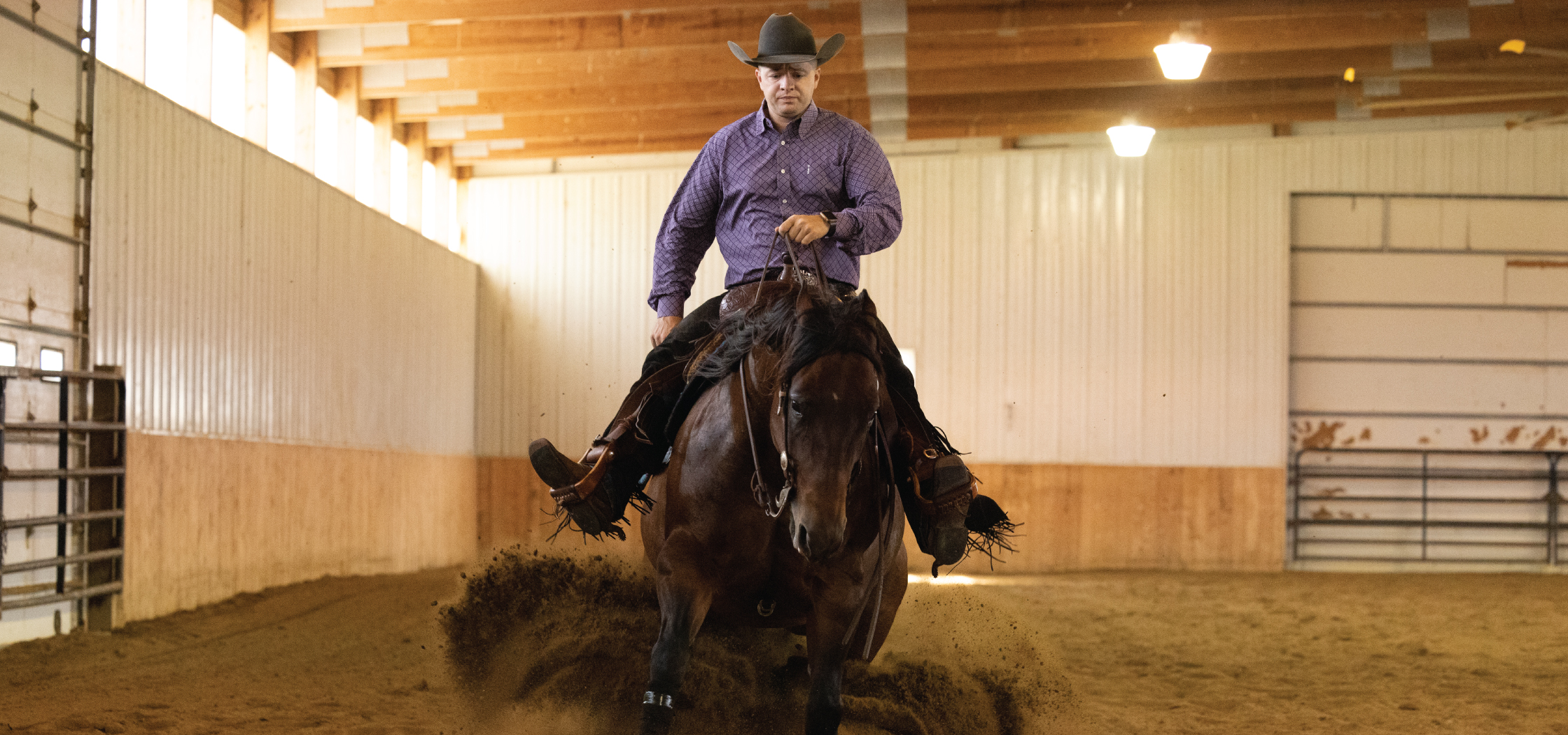When to Retire a Show Horse
by Boehringer Ingelheim / May 17, 2024

Four Questions to Consider When Thinking About Retiring Your Show Horse
There comes a time in every horse’s life when horse owners rightfully question if it might be time to hang up the show coat. But sometimes, it can be hard to determine when to do so, as there are many variables that can influence this decision.
Cassandra Cromer, DVM, Professional Services Veterinarian at Boehringer Ingelheim, offers four questions to consider when thinking about retiring your show horse, including quality of life, ongoing maintenance, routine consistency and potential other options.
1. Are They Still Enjoying Their Job?
While some horses may exhibit no apparent signs that they are ready to retire, others may clearly communicate their need for a transition. They might display:
- Resistance or unwillingness to being tacked up or ridden
- Lack of energy throughout the day
- Uncharacteristic refusal or difficulty maintaining the physical effort needed to perform their previous job
Once you see signs of decreased willingness and/or ability, it may be time to think about making a change to ensure the horse’s well-being and long-term health.
2. What Does the Ongoing Management Look Like?
As horses age, they may also require additional care and attention if they develop any age-related health conditions, such as:
- Dental problems
- Metabolic disorders
- Degenerative joint disease (DJD)/Osteoarthritis (OA)
It’s important to remember that OA can develop at any age, and horses that have been intensively exercised in their career may develop OA sooner.
If you have to do a considerable amount of management to keep your horse sound for intensive riding, it might be better for both you and your horse to transition them to a less intensive career or possible retirement.
3. Can You Keep Consistency in Their Routine?
While a horse’s retirement does change their usual routine, it is important to keep their day-to-day activities as familiar as possible to keep their stress low.
Some things to keep in mind include:
- Trimming their feet regularly
- Grooming them often and giving them a good once-over
- Keeping a consistent turnout and feeding schedule
- Keeping them active and their mind stimulated within their abilities
- Helping them remain social
“Allowing your horse to interact with other like-tempered horses, donkeys, goats and miniature horses can provide a positive behavioral influence, and can be a nice way to keep your equine friend social when in retirement,” said Dr. Cromer.
4. Have You Considered Other Career Options for Your Horse?
If a horse is serviceably sound, or just needs a step-down career, there’s plenty of other lower-impact career options that can provide them with a new purpose, such as:
- A lesson program for beginning riders, or teaching riders moving up through the ranks about flat classes, cross rails or lower fences if they were a jumper, for example
- A therapeutic riding program that includes grooming activities up through low-intensity riding
“Experienced show horses with the right temperament have lots to teach beginners looking to build confidence in the saddle and learn the fundamentals of riding,” explained Dr. Cromer.
These are just a few questions to consider if you’re thinking about retiring your horse. A good first step is consulting with your veterinarian to help decide the best course of action for you and your horse. Although retirement for a horse can seem like something is coming to an end, in reality, it’s a new chapter in their life, when they get to focus on living happily and healthily for years to come.
©2025 Boehringer Ingelheim Animal Health USA Inc., Duluth, GA. All rights reserved. US-EQU-0142-2024






